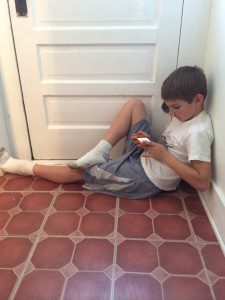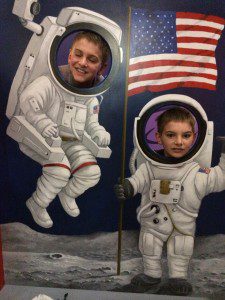
Ever wonder why people get “stuck?” Is it fear of change? Staying in the comfort zone of what you have gotten used to, even if it’s not really what you want and dream of? Listening to the internal critic and pessimism, resigning yourself to helplessness, in effect giving away your power to change? Or maybe it’s blaming someone or something for holding you back- not enough time, money, energy, nobody helps you, somebody is keeping you this way, believing things are static and can’t change, this is just the way it is?
There are many ways people can give away their power, the power to change, to create something new, to feel or think the way you really want to, to act differently or react differently.
Our stories about ourselves, our children, and our lives are very powerful. They inform us about how to think, feel, and act. They tell us what we can and can not do. We tell our stories to others who will listen and agree with our story. If they didn’t agree, or offered another explanation, it is as if they are denying us our reality, the one we are invested in, perhaps the one that explains why we have no power to be different, to feel different, to think and act differently to get a new outcome. So we tend to seek those who agree with us, and become angry with those who do not, denying their message and our own power for change. This is tribal power. This is how we maintain our “illness.”
Children learn this from us at an early age.
“He makes me get mad and have a fit.”
“My parents don’t let me play enough video games and just leave me alone, and that’s the only thing that makes me happy, I can’t live and be happy without them, my parents just want to control me, I’m miserable because of my parents, or because of school.”
“I can’t stand it when things aren’t fair.”
“School is just too boring. I can’t do it.”
“I can’t concentrate because I have…(ADHD, don’t care,…”
“I’m just lazy, that’s why I don’t do homework.”
“My parents care more about ________ than me.”
The list goes on and on.
About a thousand years ago, there was an old man sitting by a road in the dirt. It was hot, and dry, and dusty. As he sat there, a traveler approached. The man walking looked sweaty and burdened by the pack on his back, his head hung as he watched his feet moving slowly through the dust. Clump, clump, clump.
When he got to the old man sitting, he looked up and said, “Tell me about the next town I am coming to. The one I came from is horrible. The people treated me badly, there was no justice, no love, and no way to make a decent living. Is the next town any better, is it a place I should go?”
The old man frowned and shook his head sadly. “No,” he said, “You will find the same thing in the next town, you should just keep going.”
About an hour later, another man came walking down the dusty road. This man carried himself erect, looked straight ahead, and smiled when he saw the old man. “Tell me,” he said, “I have just come from a town that was wonderful, the people were all nice to me, I was able to earn a decent living, the town was overall a very fair and just place to live. I am so sad to leave it. Will this next town be anything like the last, will people be nice and fair?”
The old man smiled and nodded his head. “You should definitely go and stay in the next town, it will be just the same, and you will be happy there.”
The “placebo effect” is another way our stories and beliefs inform us about how to think and feel and behave. We believe in the curing power of the pill, and we get better. Just like that.
All of the stories about the hero’s journey have common elements. There has to be weakness, darkness, struggle, seemingly insurmountable foes or odds holding them back. It takes courage to face the obstacles, the trolls under the bridges. It takes hope, investment, and a dream of better and different. Something or someone worthwhile to save. The hero struggles through a dark time, not knowing will he live or die, or ever finish her quest. The hero decides to try in spite of the fears, becomes stronger, overcomes obstacles, finds resources within and without, learns skills, finds allies to help, and against all odds, emerges victorious in the end.
Star Wars has many such stories. The latest even has a heroine. We can use these stories as metaphors to help ourselves and our children overcome obstacles within and without to change and emerge victorious, to heal, to conquer, to “get better.” We can do this by referencing a story they know, a movie you just watched together, and compare them to the hero, comparing the obstacles and foes in the story to our or their obstacles and foes, we can elicit from them their story about what ails them, and help them construct a story where, like the hero, they become the hero in their own story.
“I wonder how and when you, like Luke, might overcome Darth Vader and the dark side, to use your force for good, and make your life and the lives of others better.” You can become the hero in your story. All you need is to first imagine the possibility and then have a little hope.